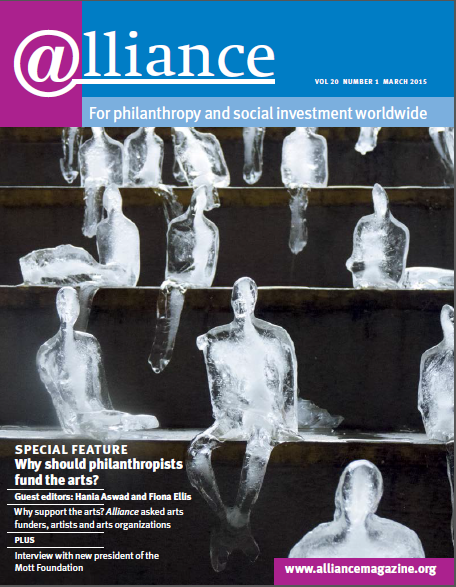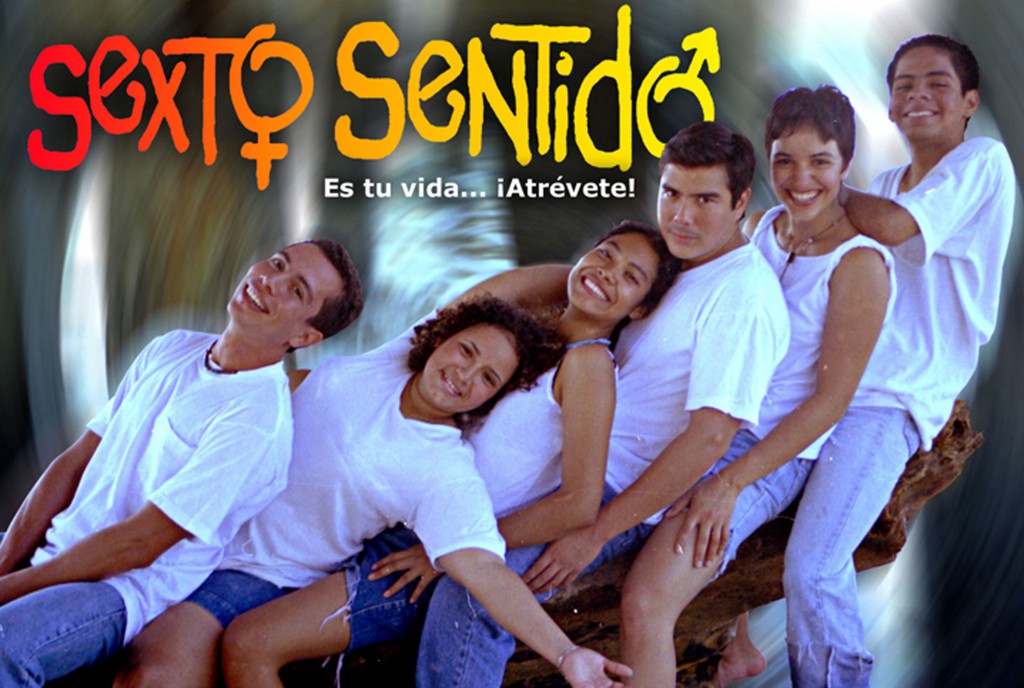This is a story about thinking outside the box, taking chances, and trusting your instincts. It’s the story of how and why the Moriah Fund decided to fund an audacious TV drama project in Nicaragua when neither ‘the arts’ nor Nicaragua were within Moriah’s funding guidelines. And it’s the story of how funding the arts can lead to demonstrable and measurable social change.
One day in 1999, I got a call from a colleague urging me to meet with Amy Bank, who had come to Washington DC on a fundraising trip from Nicaragua. Amy was part of the leadership of the Nicaraguan feminist NGO, Puntos de Encuentro (‘Meeting Points’), which was developing an innovative new project using television drama to advance sexual and reproductive health and rights in Nicaragua.
I told my colleague that despite our commitment to women’s rights and reproductive health, it was unlikely that Moriah would fund such a project: our docket was full, Nicaragua was not a priority, and arts funding fell outside Moriah’s guidelines. But I trusted my colleague, and agreed to meet with Amy anyway.
When we met, Amy told me she and her team wanted to produce a home-grown youth-oriented ‘social soap’ TV series, a hybrid of the highly popular telenovela format and commercial series like Friends, but with a twist: the show, Sexto Sentido (Sixth Sense), would focus on working class teens and young adults dealing with sex, violence and discrimination, the trials and tribulations of relationships and rites of passage, and the complex themes of sexuality, gender and reproductive rights.
You can watch a video about Sexto Sentido here:
I was intrigued. I loved the idea of using television to reach the kind of mass audience that workshops and pamphlets could never find. I shared Amy’s belief that issues of sexuality, reproduction and violence are rooted in deep-seated beliefs about power relations and gender norms, and that addressing these would require young people to question the attitudes, beliefs and behaviour they’ve been taught since childhood. And I was persuaded by Amy’s argument that dramatic human stories could draw an audience in on an emotional level; that as the stories unfolded, audiences would think and feel alongside the characters; and that this would inspire self-reflection and public discussion about issues often deemed too personal or controversial to talk about.
But Amy wasn’t just pitching a TV show as a creative way to put issues on the agenda to a mass audience, she was pitching the series as part of an integrated strategy that would combine mass media – Puntos also had a radio show and a magazine – with community education and organizing. The mass reach of the media would both reinforce and be reinforced by local organizing work. Sexto Sentido would be used to connect individual viewers to social and health services and to help local organizations open up community dialogue on issues that had long been considered taboo.
Now I was excited about the project, and thought that Moriah’s board might be as well. The Moriah board was not afraid to take risks, was flexible in its approach, and was committed to providing seed funding for innovative projects that, because of their ‘thinking outside the box’ nature, had difficulty raising funds from other sources. Upon reflection, this ‘out of our guidelines’ project seemed like a perfect fit.
Raising the money
The budget for Sexto Sentido was far larger than the $30,000 Moriah could provide, and while Amy had already raised roughly half a million dollars to develop infrastructure, put a team together, train scriptwriters and actors and get ready for production, she still needed close to $200,000 dollars to start production.
Fortunately, I was able to connect Amy to the Summit Foundation, which agreed to provide $150,000 for the project. Now Amy had enough to produce the first season (35 episodes) of Sexto Sentido, to develop accompanying educational materials, and to promote creative community events to extend outreach and maximize impact.
The project not only got off the ground, it was a hit – so much so that Puntos started getting requests to show the series in other countries. Then they hit a snag. At that time, Nicaragua had no real intellectual property laws, and Puntos had been using songs off the radio for each episode without any problem. But when the possibility of broadcasting internationally came up, they could only do so with legal rights to the music.
Amy came back to Moriah and asked if we’d be willing to make another grant so that Puntos could pay for licences for use of songs by Nicaraguan musicians, and then re-edit the first season of episodes. Since we wanted the project to have the broadest impact possible, especially if our funds could help get the series into other countries, we decided to make a second grant.
This turned out to be a great investment on two levels: it permitted the ‘internationalization’ of Sexto Sentido (it has now shown in ten countries) and it facilitated the development of a unique model of licensing and paying for local artists’ work that Puntos continues to use in all its productions. Not only did Nicaraguan musicians reach a broader audience, they got paid.
Several years later, Puntos decided to develop a second TV series, and Moriah provided seed funding for what would eventually become Contracorriente (Turning the Tide). Contracorriente tackled emerging issues of migration and globalization and the impact of these on gender, family dynamics and social change. Like Sexto Sentido, Contracorriente enjoyed tremendous success and has been broadcast in half a dozen countries to date.
Supporting innovation
In many ways, Sexto Sentido was ahead of its time, serving as a springboard for ‘transmedia’ storytelling – telling a story through multiple platforms. So the actors went on tours to schools and communities; campaigns were developed around the different themes; and Puntos developed thematic educational packs made up of ‘mini-movies’ edited from the Sexto Sentido and Contracorriente episodes and accompanied by discussion guides. The educational packs are used over and over in schools and community groups throughout Central America and will soon be available online.
Another innovation was in the realm of philanthropy. Based on the success of Sexto Sentido’s first season, Puntos was able to put together a ‘basket fund’ for the next season and phase of the multi-year project. This involved getting almost a dozen funders to agree to co-fund the project on the basis of a single project proposal and budget, and a single narrative and audited financial report. This not only helped reduce the amount of time spent on administration and report-writing, but increased transparency as well.
An important side benefit was bringing funders together for twice-yearly meetings to talk about the project. These meetings led to another innovation – an ambitious external evaluation that took on the challenge of measuring the impact of this kind of cultural advocacy on behavioural and social change. The results were impressive. Quantitative research showed that Sexto Sentido had achieved tremendous reach and significant impact in Nicaragua; qualitative research and analysis revealed how some of that impact was achieved. Findings from the evaluation were widely shared, providing lessons for others interested in utilizing arts and popular culture to shift cultural norms to advance social justice and human rights.
You can watch a trailer for Contracorriente here:
Looking back
The three grants we made to Puntos de Encuentro were tremendously satisfying. Thinking about them now, I’m glad my board was open to funding outside its guidelines, didn’t demand to know precisely what the ‘measurable results and impact’ would be before approving the first grant, and was willing to respond to unanticipated obstacles and opportunities with additional grants along the way.
Since then, Moriah has provided funding to other women’s rights, adolescent health and gender justice organizations that use artistic/cultural expression as part of their approach, including, for example, ProMundo in Brazil, Raising Voices in Uganda, and Life Pieces to Masterpieces in Washington DC. Like Puntos de Encuentro, these organizations have shown that popular culture and the arts can be worthy investments for philanthropy and powerful tools for social change.
Shira Saperstein was formerly the deputy director of the Moriah Fund and is currently a principal at ConwayStrategic. Email: shira@conwaystrategic.com
Amy Bank is co-founder of Puntos de Encuentro and executive producer of Sexto Sentido. She is now a consultant to Puntos and other organizations. Email: amy.bank@puntosdeencuentro.org




Comments (0)